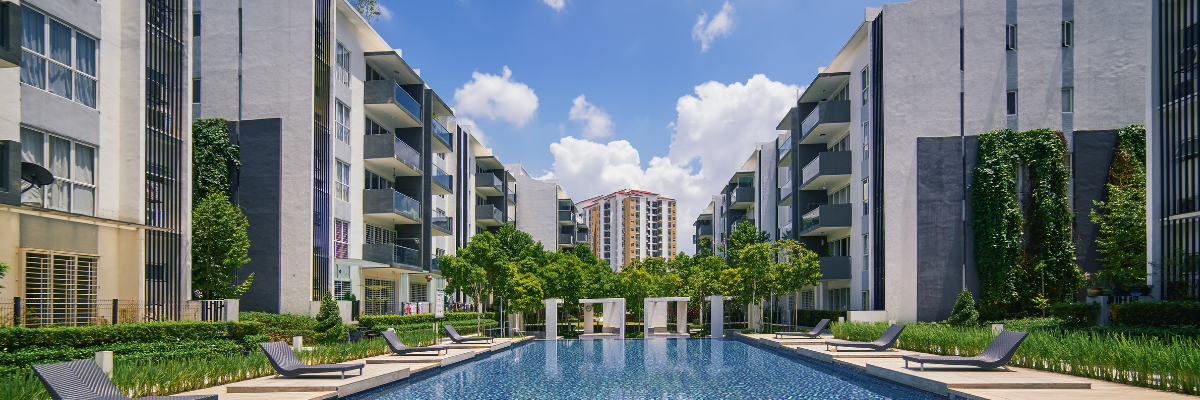
The growth of short-term rentals has changed the dynamics of many homeowners’ communities. While for some it represents a source of income, for others it brings inconvenience, constant access by strangers, and sometimes problems with coexistence. To address this situation, a new reform of the Horizontal Property Law was approved last January and will come into force on April 3rd, 2025.
This change gives communities more control over tourist rental activity in their buildings or developments, allowing them to approve, limit, condition, or even prohibit this type of use. In fact, harsher penalties may be imposed on those who rent without authorisation.
If you are a property owner and live in a building where tourist rentals are being proposed, we explain how the new regulation may affect you and what steps to follow.
Índice de contenidos
Three-fifths majority vote required
With the entry into force of Organic Law 1/2025, Article 17.12 of the Horizontal Property Law has been amended. From now on, authorising, prohibiting, limiting or conditioning holiday rentals will require the favourable vote of at least three-fifths of all property owners, who must also represent three-fifths of the ownership shares.
Approval must go through a general owners’ meeting. Failing to do so may lead to problems, as owners who rent without the community’s approval may face financial penalties. The exact amount will be determined by each autonomous region and can reach up to €600,000. In addition, a new section 3 is added to Article 7, empowering the community president to demand the immediate cessation of unauthorised rental activity and to take legal action if necessary.
Any resident may also file a complaint if the activity causes disturbances or negatively affects coexistence.
Legal Amendments:
Article 7.3: New section regulating the power to demand the suspension of unauthorised tourist rental activity.
Article 17.12: Reformulated to establish the required voting majority for decisions regarding holiday rentals.
How does this change affect you?
If you are a property owner in a building where the use of flats as short-term rentals is being considered, you now have tools to decide on their presence—you can approve, reject, or regulate their use by voting to set conditions or limitations within the community.
Surcharge of up to 20% on community fees
In addition to the regulatory control over authorisation, there are economic consequences for those engaging in this activity. The homeowners’ association may approve the application of a surcharge of up to 20% on the community fees for properties used for tourist rentals.
This measure seeks to compensate for the increased use of shared spaces, especially due to the constant and changing flow of people unrelated to the property, and the corresponding wear and tear on communal facilities and services. To approve this surcharge, the same qualified majority is required: at least three-fifths of all property owners, who also represent at least three-fifths of the ownership shares.
National and regional regulations
This reform is based on a national amendment to the Horizontal Property Law, but its practical application will depend on each autonomous community. Some regions may establish additional requirements, different penalties, or specific conditions for carrying out tourist rental activity.
New wording of the amended measures in the HPL
Below is the updated wording of the articles of the Horizontal Property Law (HPL) concerning tourist apartments, so you can see the exact legal modifications:
Article 7.3 – New section added:
“3. Any property owner wishing to carry out the activity referred to in letter e) of Article 5 of Law 29/1994, of 24 November, on Urban Leases, as regulated by sector-specific tourism regulations, must first obtain the express approval of the homeowners’ association, in accordance with Article 17.12 of this Law.
The president of the community, either on their own initiative or at the request of any owner or occupant, shall require anyone carrying out the activity described above, without express approval, to immediately cease such activity, under warning that appropriate legal action may be taken, as established in the previous section.”
Article 17.12 – Amended wording:
“12. The express agreement to approve, limit, condition or prohibit the activity referred to in letter e) of Article 5 of Law 29/1994, of 24 November, on Urban Leases, as regulated by sector-specific tourism regulations—regardless of whether this represents a modification of the constitutive title or the bylaws—shall require the favourable vote of three-fifths of the total number of property owners, who must also represent three-fifths of the ownership shares. The same majority shall be required for any resolution that establishes special expense quotas or increases the share of common expenses for the property used for such activity, provided that these modifications do not exceed a 20% increase. These agreements shall not have retroactive effect.”
Second additional provision – New addition:
“Any property owner who was already carrying out the activity referred to in letter e) of Article 5 of Law 29/1994, of 24 November, on Urban Leases, before the entry into force of the Organic Law on Measures for Improving the Efficiency of the Public Justice Service, and who was previously authorised under the sector-specific tourism regulations, may continue the activity under the terms and time limits established therein.”